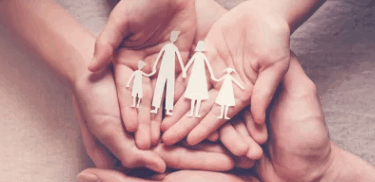Many women face high-risk pregnancies. Stay informed and healthy to maintain the best frame of mind.
 Maria Polidaks of Nashville struggled to remain calm as her blood pressure climbed to a dangerous level near the end of her first pregnancy. Twenty-two days before her due date, Maria’s blood pressure spiked; her doctor induced her, and she delivered a healthy baby.
Maria Polidaks of Nashville struggled to remain calm as her blood pressure climbed to a dangerous level near the end of her first pregnancy. Twenty-two days before her due date, Maria’s blood pressure spiked; her doctor induced her, and she delivered a healthy baby.
Her second pregnancy, automatically labeled high-risk, took an alarming turn when her blood pressure surged dangerously high again – this time at only two months gestation. She had a high-maintenance job, a busy toddler and a health condition that threatened her life, as well as that of her unborn baby.
“I was told I needed to stay home and be as still as possible,” Maria says. “I felt stressed because everyone had to take care of me, but this was the way my body reacted, and there was nothing I could do about it.”
It can be terrifying to have your pregnancy labeled high-risk, but, it’s a broad term applied to any woman who faces a higher-than-average risk of complications during pregnancy or delivering a baby with health concerns. It doesn’t mean your pregnancy won’t progress normally, nor does it mean your baby will be unhealthy.
Just the Facts, Ma’am
For most moms-to-be, the worrying starts almost as soon as the pregnancy test comes back positive. Expect your pregnancy to be labeled high risk if you have a chronic medical condition (like high blood pressure or diabetes) that could affect the pregnancy and health of your baby. Obesity, a sedentary lifestyle and using alcohol or drugs directly affect an unborn baby’s health, development and growth and could also land you in the high-risk camp. According to the U.S. Department of Health and Human Services, smoking during or after pregnancy has been linked to one in 10 infant deaths.
Sometimes otherwise healthy women find themselves in the high-risk category. If you are younger than 17 or older than 35, overweight or carrying twins, you have a greater-than-average chance of developing problems. Women who develop gestational diabetes, high blood pressure (preeclampsia) and placenta previa (placenta covering the cervix) as well as those with a history of pregnancy-related complications run higher-than-average risks during pregnancy and delivery. The good news is that less than one quarter of women labeled high-risk develop a complication that requires intervention.
Peter Bernstein, M.D., counsels high-risk patients to narrow in on what their diagnosis means specifically to them. “It’s important to be as specific as possible, quantify the risk and find out its significance to you.”
Getting the Information You Need
If your doctor labels your pregnancy high-risk, experts say don’t be intimidated by the label. Ultimately, it’s your life, your pregnancy and your baby. Find out why you’ve been placed in this category, what the risk factors are and what you can do. “Knowledge is power in this situation, and the more accurate information you have, the better decisions you can make,” says Bernstein.
If your health-care provider doesn’t offer a satisfactory explanation of what’s going on with your baby or you, it’s time to seek a second opinion. Look for a referral from a trusted friend who has had a great experience with her own doctor. You can also go online to reputable medical sites, like the American College of Obstetricians and Gynecologists (acog.org) to learn more about what you’ve been told regarding your diagnosis, but be sure to review your findings with your doctor at your next visit. Knowing concrete facts (instead of focusing on the “what-ifs”) will give you the power to be involved, as well as peace of mind.
Keeping Things “Normal”
When a woman is told she is having a high-risk pregnancy, she automatically starts dealing with additional stress. Keeping your routine as normal as possible will go a long way in reducing your stress level.
If a hospital stay is mandatory, some offer playrooms and kitchens for family use and allow partners to stay overnight and children to visit whenever possible. Be your own advocate and ask for daily reports so you know what’s happening and why. Keep your spirits up by bathing daily, wearing your own nighties and spending time enjoying quiet activities.
For some women, stress during pregnancy can be a positive motivator. A high-risk label can lead to finally finding the reason to start paying attention to poor lifestyle or health-care choices. “Maybe stress can be a good thing if it’s channeled to help you by eating properly, getting exercise and making it to all your appointments,” Bernstein says.
When it comes to high-risk pregnancies and premature delivery, every day counts, and how well each preemie fares depends on how early he arrives. Almost 100 percent of babies born after week 30 will survive with no long-term problems.
Accepting the Unacceptable
Being ordered to stay in bed, watch movies and generally lie around all day may sound like a dream – until you’ve done it for three months with another three ahead of you.
Research proves that bedrest at home is less stressful on women than staying in a hospital. Home care nurses and family and friends can help you to organize appointments, find resources and provide prenatal education.
The bottom line for most moms-to-be is that bedrest is boring, but it can also be a direct route to an even bigger pregnancy risk – depression.
“Because we have been so tuned to diagnose depression after pregnancy, we often missed signs that it was happening earlier,” says Shaila Misri, M.D., author of Pregnancy Blues: What Every Woman Needs to Know About Depression During Pregnancy (Delta; $15).
“Depression is the most frequently encountered medical condition of women during high-risk pregnancies, yet prenatal classes will tell you about placental bleeding and hypertension, which are not as common,” Misri says. “Depression is a highly treatable illness. You will get through it.”
If you’re concerned you may be depressed, talk to someone you trust and get the help you need. Depression isn’t something you can control, but it’s something your doctor can help you overcome.
While being over-the-moon happy about your pregnancy, health issues can quickly transform bliss into nine long months of constant worry. Unfortunately, no one can promise you a perfect pregnancy, or a perfect baby, no matter how “normal” your pregnancy. The high-risk label isn’t a self-fulfilling prophecy, though, and it doesn’t take away your ability to stay informed, make healthy choices and seek adequate prenatal care. It’s easy to let your imagination run wild, but staying grounded and doing everything in your power will give your baby and you the very best odds of a successful pregnancy outcome.
Julia Rosien is a freelance writer.
What Helps
While bedrest can improve your high-risk pregnancy it can be incredibly taxing to your mental state. To help you cope, try some of these suggestions:
The Zone – Set up a relaxation-friendly environment that will keep you sane while your partner is at work. Make sure you’ve got a phone, telephone book, remote controls for the TV and CD player, a Thermos of decaf coffee or tea, a cooler stocked with water and juice, healthy snacks and a wide variety of reading material.
Hobby Central – Remember that scrapbooking project you started last June? What about the scarf you never got around to finishing?
This is the perfect time to catch up your journal, letters to old friends, and didn’t you say you wanted to learn to speak French?
Company’s Coming – Check with your health-care provider first, and then roll out the welcome mat – with caution. Make sure your guests have a key to let themselves in and lock up when they leave, and let them know prior to their visit if you have any time restrictions on talking with company. While they’re there, ask them to throw in a load of laundry, vacuum the family room or clean up the breakfast dishes.
Learn About Birth – If your budget won’t allow you to hire a childbirth educator to come to your home, rent some videos.
Have a Picnic – You may not be able to attend your son’s field trip, but reading quietly in bed together, sharing a snack or doing a simple craft is a great way to spend some extra time together before the baby arrives.




